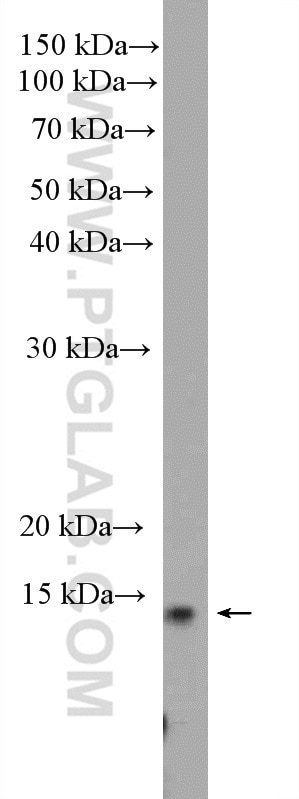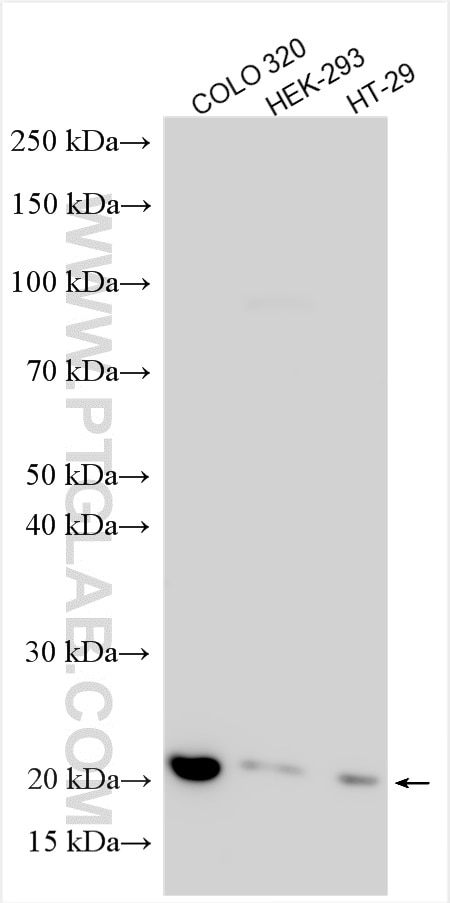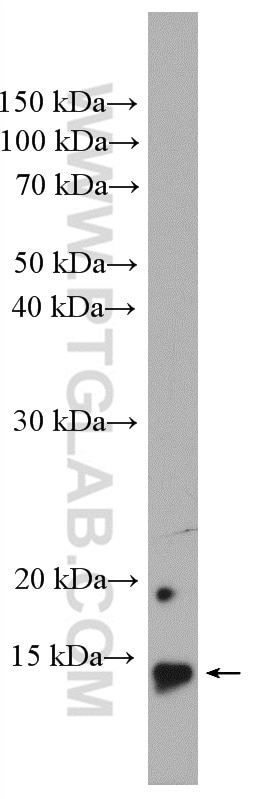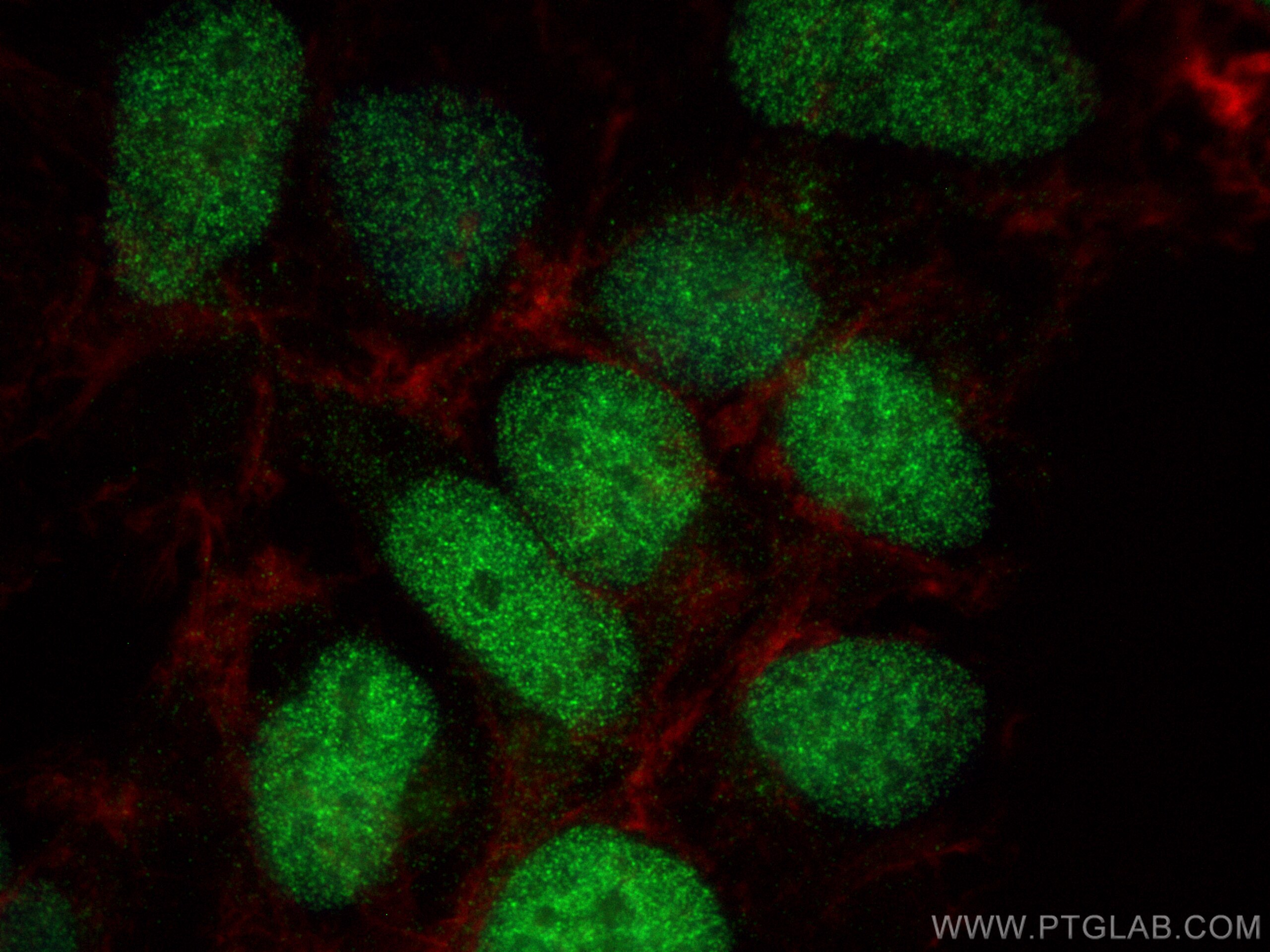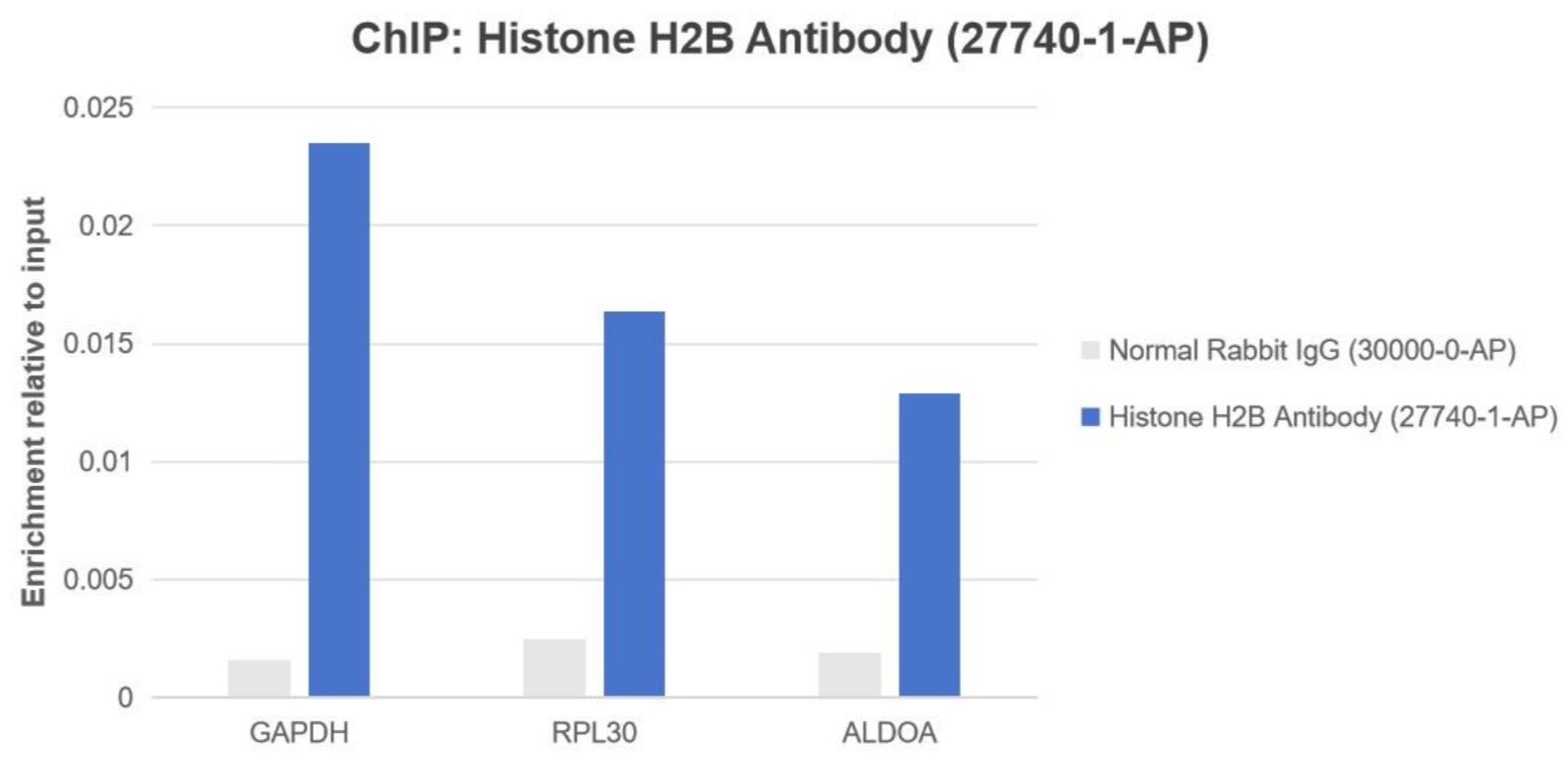Tested Applications
| Positive WB detected in | COLO 320 cells, HEK-293T cells, HEK-293 cells |
| Positive IF/ICC detected in | HEK-293 cells |
| Positive ChIP detected in | HEK-293 cells |
Recommended dilution
| Application | Dilution |
|---|---|
| Western Blot (WB) | WB : 1:500-1:3000 |
| Immunofluorescence (IF)/ICC | IF/ICC : 1:300-1:1200 |
| Chromatin immunoprecipitation (ChIP) | CHIP : 1:10-1:100 |
| It is recommended that this reagent should be titrated in each testing system to obtain optimal results. | |
| Sample-dependent, Check data in validation data gallery. | |
Product Information
27740-1-AP targets Histone H2B in WB, IF/ICC, ChIP, ELISA applications and shows reactivity with human samples.
| Tested Reactivity | human |
| Host / Isotype | Rabbit / IgG |
| Class | Polyclonal |
| Type | Antibody |
| Immunogen |
CatNo: Ag26901 Product name: Recombinant human HIST3H2BB protein Source: e coli.-derived, PGEX-4T Tag: GST Domain: 1-126 aa of BC100855 Sequence: MPDPSKSAPAPKKGSKKAVTKAQKKDGKKRKRGRKESYSIYVYKVLKQVHPDTGISSKAMGIMNSFVNDIFERIASEASRLAHYNKRSTITSREVQTAVRLLLPGELAKHAVSEGTKAVTKYTSSK Predict reactive species |
| Full Name | histone cluster 3, H2bb |
| Observed Molecular Weight | 15-20 kDa |
| GenBank Accession Number | BC100855 |
| Gene Symbol | Histone H2B |
| Gene ID (NCBI) | 128312 |
| RRID | AB_3085992 |
| Conjugate | Unconjugated |
| Form | Liquid |
| Purification Method | Antigen affinity purification |
| UNIPROT ID | Q8N257 |
| Storage Buffer | PBS with 0.02% sodium azide and 50% glycerol, pH 7.3. |
| Storage Conditions | Store at -20°C. Stable for one year after shipment. Aliquoting is unnecessary for -20oC storage. 20ul sizes contain 0.1% BSA. |
Background Information
Histones are basic nuclear proteins that are responsible for the nucleosome structure of the chromosomal fiber in eukaryotes. Nucleosomes consist of approximately 146 bp of DNA wrapped around a histone octamer composed of pairs of each of the four core histones (H2A, H2B, H3, and H4). The chromatin fiber is further compacted through the interaction of a linker histone, H1, with the DNA between the nucleosomes to form higher order chromatin structures. HIST3H2BB is a replication-dependent histone that is a member of the histone H2B family.
Protocols
| Product Specific Protocols | |
|---|---|
| IF protocol for Histone H2B antibody 27740-1-AP | Download protocol |
| WB protocol for Histone H2B antibody 27740-1-AP | Download protocol |
| Standard Protocols | |
|---|---|
| Click here to view our Standard Protocols |

